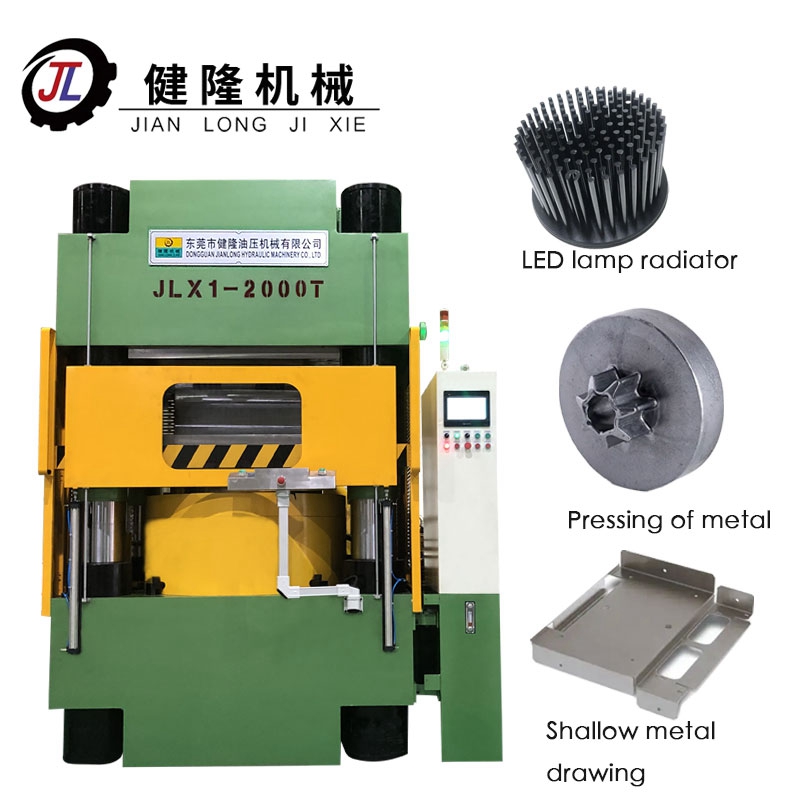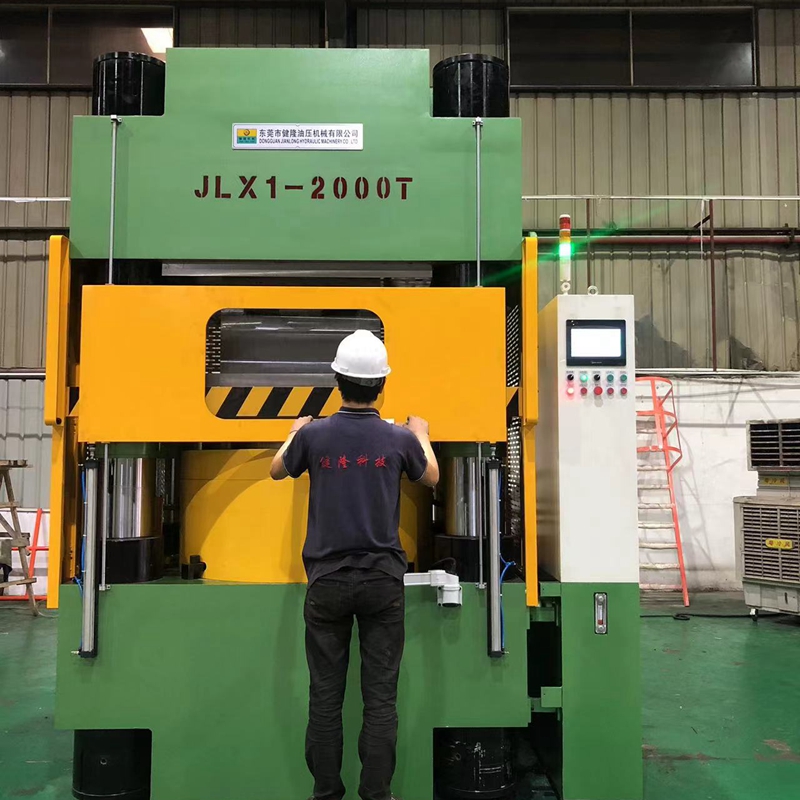Hydraulic press is the core equipment for the forming and manufacturing of radiators (such as CPU heat sinks, automobile water tanks, LED heat dissipation modules, etc.). It provides stable high pressure through the hydraulic system and combines with the mold to achieve precision stamping, extrusion, molding or hot pressing to ensure the high thermal conductivity, structural strength and consistency of the radiator. Therefore, hydraulic press plays a vital role in the radiator forming process, and its key role is mainly reflected in the following aspects:

1. High-precision molding control
1.1 Complex structure molding: Radiators usually have dense fins, thin walls or special-shaped structures (such as CPU radiators, automobile water tanks, etc.). Hydraulic presses can achieve micron-level precision through precise pressure and displacement control, ensure the consistency of molding dimensions, and avoid burrs or deformation.
1.2 Multi-step process integration: Hydraulic presses can combine stamping, extrusion, molding and other processes to complete the substrate molding, fin stamping or brazing pre-assembly of the radiator at one time to improve efficiency.
2. High pressure and uniform force
2.1 Material adaptability: Whether it is soft metals such as aluminum and copper, or composite materials, hydraulic presses can achieve uniform force by adjusting the pressure (up to hundreds to thousands of tons), avoiding local stress concentration leading to cracking or uneven thickness.
2.2 Advantages of thin-wall molding: The thickness of the radiator fins may be as low as 0.1mm, and the slow and stable pressurization of the hydraulic press can reduce the risk of material tearing.
3. Temperature and pressure coordination (thermoforming application)
3.1 Hot pressing molding: Some radiators require heated molds (such as aluminum materials have better ductility at 400~500℃). The hydraulic press can cooperate with the temperature control system to achieve constant pressure and pressure maintenance in a high temperature environment to ensure the fluidity of the material to fill the mold details.
3.2 Diffusion welding: In a vacuum or protective atmosphere, the hydraulic press provides high pressure to combine the multi-layer fins of the radiator with the atoms of the substrate, and high-strength thermal conductivity can be achieved without solder.
4. Production efficiency and automation
4.1 Fast cycle: Modern servo hydraulic presses can complete mold opening, feeding, molding, demolding and other steps at high speed through closed-loop control, which is suitable for mass production.
4.2 Automation integration: Hydraulic presses are easy to link with manipulators and visual inspection systems to realize a fully automatic production line from raw materials to finished products for radiators.
5. Quality consistency guarantee
5.1 Parameter repeatability: Parameters such as pressure, speed, and stroke of the hydraulic system can be digitally set and stored to ensure stable performance of each batch of products, especially for key indicators such as thermal resistance and wind resistance of the radiator.
5.2 Defect control: Through real-time monitoring by pressure sensors, material defects (such as pores and inclusions) can be detected immediately and the machine can be stopped for adjustment to reduce the scrap rate.
6. Special process support
6.1 Liquid metal die casting: When used for aluminum alloy radiators, the high-pressure injection of the hydraulic press can ensure that the metal liquid fills the fine cavity of the mold to form high thermal conductivity fins.
6.2 Superplastic forming: For difficult-to-deform materials such as titanium alloys, hydraulic presses can achieve superplastic stretching at specific temperatures/rates to manufacture high-performance radiators for aerospace.

Hydraulic presses are irreplaceable core equipment in radiator manufacturing. Their high precision, high flexibility and high-pressure capabilities directly determine the performance (such as thermal conductivity, structural strength) and production costs of radiators. As hydraulic technology develops towards intelligence and energy saving (such as servo hydraulic systems), its role in the trend of lightweight and miniaturization of radiators will be further enhanced. For more radiator forming knowledge sharing/suggestions or the need to purchase high-quality hydraulic presses, please feel free to tell us (you can scan the WhatsApp QR code below). Jianlong Hydraulic Technology will provide you with personalized, customized professional solutions and serve you wholeheartedly.

Contact: Jojo
Phone: 18822971180
E-mail: lifuyan78@gmail.com
Whatsapp:+8618822971180
Add: Guangyi Industrial Park, No.2 Jinfu West Road, Tanglip, Liaobu Town, Dongguan City, Guangdong Province, China
We chat
